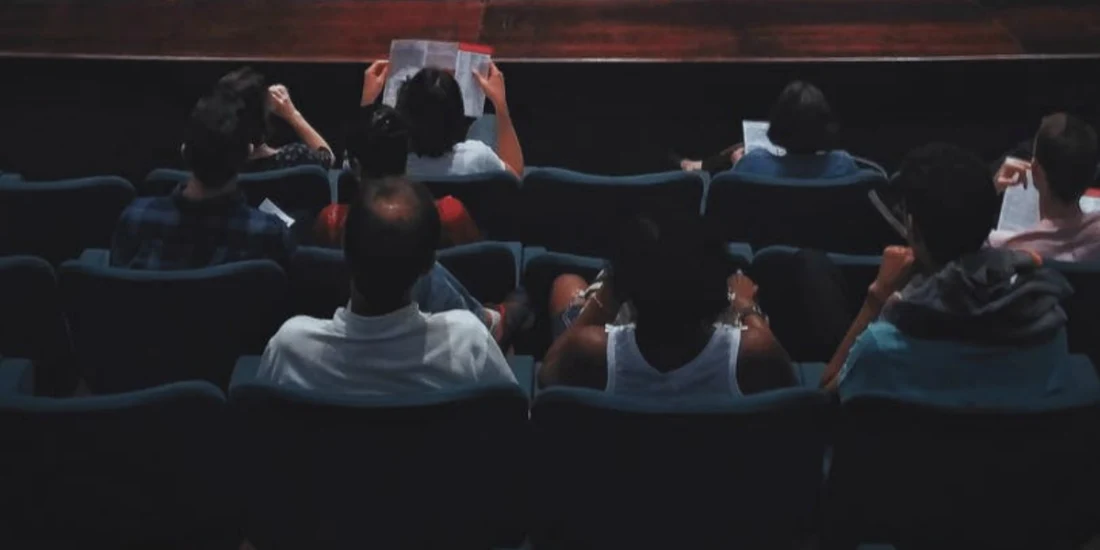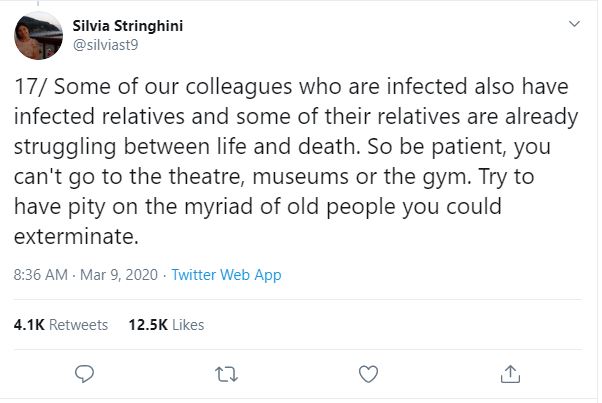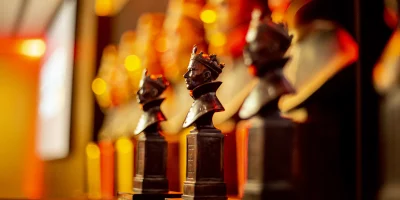
What theatres are doing to cope with the growing impact of Coronavirus
When the best government advice to avoid the coronavirus is still to wash your hands frequently - and for at least twenty seconds, with soap and water - but its own health minister Nadine Dorries has become the first MP to test positive for the virus and is now self-isolating at home, its proving difficult to know exactly what to do to keep oneself safe.
Last week I reported on the first signs of worry (and action) in the entertainment world, with Guildhall School of Music and Drama closing its facilities after a teacher treated positive, a charity theatre gala being postponed and delayed openings being announced for Andrew Lloyd Webber's latest musical Cinderella in the West End and the global release of new James Bond film No Time to Die (a title which I hope isn't prophetic): "This is obviously a fast-moving situation and these incidences are no doubt only the tip of the entertainment iceberg."
There's an imminent rush of 13 more shows opening on Broadway in the next six weeks - in less than a week's time, I am due to fly to New York myself to see some of them: "Unless I'm physically prevented from doing so by a shutdown of air travel, I'll be going."
I applied the age-old showbusiness adage, "the show must go on." Remember, that after the biggest-ever terrorist attack on US soil of 9/11, Broadway was shut down for just two days, before resuming performances on 13th September. As Jed Bernstein, the president of the League of Broadway Theatres and Producers (now the Broadway League, the Broadway equivalent of SOLT), recalled to Playbill, "We had gotten a very strong message from the Mayor and the Deputy Mayors that the Mayor wanted Broadway open as quickly as possible, not only for the economic benefits that getting the city back to work would provide, but also for the psychological benefits that Broadway being up and running would contribute."
But we're in different psychological - and physical - jeopardy now. The virus is an unseen enemy, and it may be that Broadway - which traditionally attracts a demographic of older spectators that would be at higher risks if they are infected - will contribute to the dangers they face.
One Broadway commentator Lee Seymour duly tweeted yesterday:
In Italy, where a country-wide lockdown has been put in place, a thread posted on Twitter provided a translation of a post by an ICU physician Dr. Daniele Machine. One entry is particularly pertinent:
We are not (yet) at the scale of infections being experienced in Italy - and the decision on what we do may yet be taken from us if a similar lockdown follows here or in America. Already a one-mile containment zone has been established in New Rochelle, a suburb just north of Manhattan, where schools, churches and synagogues have been shut down and large indoor gatherings officially banned. As the New York Times reported yesterday, "The move seemed likely to be a precursor to similar, and perhaps more severe, actions elsewhere as the virus continues to spread quickly around the country."
Meanwhile, Broadway theatre producers are seeing numbers slide for attendance at their shows - Disney's three attractions there, The Lion King, Frozen and Aladdin saw grosses down by 16.1%, 13.7% and 8.2% last week. As the aforementioned Lee Seymour reported on Forbes, citing a Disney insider who asked not to be named, the virus's impact on tourism is the culprit. The insider told him, "Our shows were hit, because international tourists make up a sizable percentage of the house and many of them face travel restrictions."
The drop at The Lion King is particularly notable, because this is was only the second time in over two decades that its income fell below 60% of its potential - the last time being 2001.
As veteran producer Tom Viertel tells Forbes, "Any event that would drive people away from congregating in the area will be a disaster. Broadway will absolutely be affected. How long it will be affected, and whether there'll be empty theaters, who knows?"
The Broadway League are working to reassure nervous theatregoers and producers alike. "We do believe very strongly that the show should go on," Charlotte St. Martin, president of the Broadway League, told journalists. Theatres are being given more stringent cleans, both backstage and front-of-house, and interactions at stage doors are now being restricted.
But how do you keep the audiences coming? One step, of course, is to reduce the price: yesterday, Broadway producer Scott Rudin, who is currently responsible for five headline attractions there including the long-running The Book of Mormon and the hit play To Kill a Mockingbird (due to arrive in London in May), as well as three new productions this season, West Side Story, The Lehman Trilogy and Whose Afraid of Virginia Woolf?, announced that all remaining tickets for performances through to 29th March will be sold for just $50.
As he told the Hollywood Reporter's David Rooney, "These are shows that are playing to fantastically healthy business. My partners and I want the buildings full — even, and especially, during this crisis — and this is the way to ensure it. I don't want the actors looking into a sea of red velvet. Nobody wants that. I want no deadwood in these buildings — and my colleagues and I want to give people the chance to see these shows when they otherwise might not be able to afford tickets or to even get tickets."
And he also commented in a separate press release, "As long as New York City is open for business, its beating heart remains the Broadway stage... I can't pretend that great theatre is the panacea we've been waiting for, but in the meantime I think we could all use a few hours away from the evening news."
That cue has already been picked up in London by the Menier Chocolate Factory's David Babani, who is about to offer the London premiere of Paula Vogel's Broadway play Indecent there. In a statement issued yesterday, Babani commented, "Inspired by Scott Rudin's stance on Broadway, we have decided to sell all remaining tickets for March's performances at £20. Our doors are open, and we want to share this important piece of theatre with audiences across the capital."
Of course theatre is only a tiny fraction of the ways our lives are being affected right now. But theatre provides succor and comfort to many, and it's great that, for now, we can still enjoy it.
If you have a query regarding a ticket booking, please read our latest update.
Originally published on











